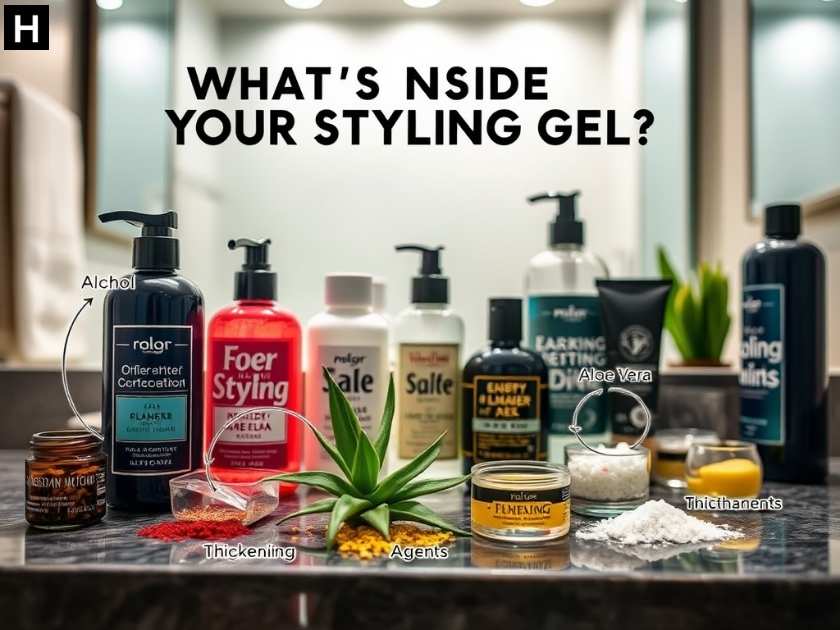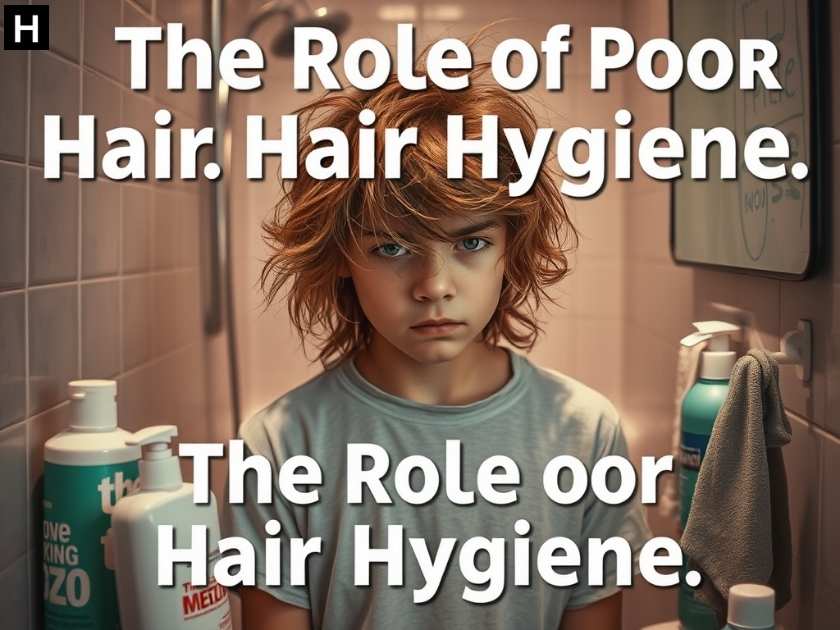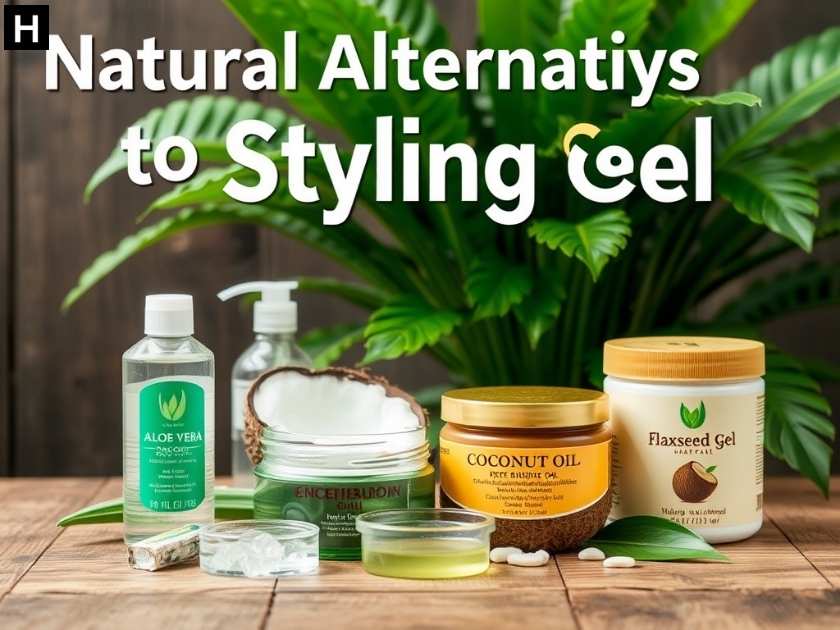Hair loss is a growing concern for many, especially those who use styling products daily. One common question is whether styling gel causes hair loss or if it’s just a myth. With so much conflicting advice, it’s easy to feel confused about what’s harming your hair.
The truth is, not all styling gels are created equal. Some contain harsh chemicals that may weaken hair over time, while others are safe when used correctly. Understanding the ingredients, effects, and proper usage of hair gel is crucial to keeping your hair healthy and strong. Let’s uncover the facts and debunk the myths!
Understanding Hair Loss: Causes & Myths
Hair loss happens for many reasons, not just one. Genetics is the most common cause, known as androgenetic alopecia. Hormonal imbalances, stress, and poor nutrition also play a role.
A common myth is that only older people lose hair. In reality, hair thinning can begin in the 20s. Another myth is that wearing hats causes baldness, but hats don’t affect hair roots.
Using hair products like gel is often blamed, but the real issue is how they are used. Poor scalp hygiene and harsh chemicals are bigger concerns. Understanding true causes helps in preventing hair loss.
What’s Inside Your Styling Gel?

Hair gels contain various ingredients, some beneficial and others harmful. Common components include polymers, which hold hair in place. Alcohol is also present in many gels, which can cause dryness.
Some gels have artificial fragrances and preservatives. These can irritate sensitive scalps. Silicones are added to create shine but may build up over time.
Not all gels are harmful if chosen wisely. Natural and alcohol-free formulas are safer. Reading labels helps in selecting the right product.
Does Styling Gel Clog Hair Follicles?
Hair gels can clog follicles if not washed out properly. When applied heavily, they mix with dirt and oil, forming a layer on the scalp. This blocks natural hair growth.
Blocked follicles can lead to scalp irritation and dandruff. Over time, this may weaken hair roots. Proper cleansing is necessary to prevent buildup.
Using lightweight, water-based gels reduces the risk. Regular washing and exfoliating the scalp keep follicles clear. Healthy hair starts with a clean scalp.
Alcohol in Hair Gels: A Hidden Enemy?
Many styling gels contain alcohol, but not all types are harmful. Short-chain alcohols like ethanol and propanol dry out hair. They strip moisture, making hair brittle.
Long-chain alcohols, such as cetyl alcohol, are different. They help in conditioning and don’t cause dryness. Understanding the type of alcohol in your gel is important.
Frequent use of drying alcohols can lead to breakage. To prevent damage, choose alcohol-free or hydrating gels. Healthy hair needs moisture, not dehydration.
Does Frequent Gel Use Lead to Hair Thinning?
Using gel daily may contribute to hair thinning if misused. Heavy application causes product buildup. This buildup weakens the scalp’s health over time.
Gels with harsh chemicals can weaken hair strands. Overuse may lead to dryness, making hair more prone to breakage. Proper hydration and nourishment are necessary to maintain strength.
Applying gel sparingly and washing it out regularly minimizes risks. A balanced hair care routine prevents damage. Moderation is the key to maintaining healthy hair.
See More: How to Style Very Short Hair Female: Quick Tips for a Stylish Makeover
The Role of Poor Hair Hygiene

Dirty hair and scalp create an unhealthy environment. Sweat, oil, and product buildup suffocate hair follicles. This weakens roots and may accelerate hair shedding.
Skipping regular washing allows bacteria and fungus to thrive. These can cause dandruff and itching. Inflammation from poor hygiene may lead to scalp infections.
Proper cleansing with a mild shampoo prevents problems. Scalp massage boosts circulation, promoting healthy hair growth. Clean hair is stronger and less prone to damage.
How to Use Styling Gel Without Damaging Hair
Applying styling gel correctly reduces damage. Use a small amount and distribute it evenly. Avoid applying directly to the scalp.
Washing hair before bed removes residue. Sleeping with gel-coated hair can cause scalp buildup. Always rinse thoroughly with water or a mild shampoo.
Choose gels with moisturizing ingredients. Aloe vera and natural oils help retain hydration. Healthy application habits keep hair looking good without harm.
Best Hair Gels for Healthy Hair
Choosing the right gel prevents unnecessary damage. Water-based gels are the safest option. They provide hold without causing buildup.
Avoid gels with sulfates and parabens. These chemicals strip hair of essential moisture. Alcohol-free formulas keep hair hydrated and soft.
Look for gels with natural ingredients. Aloe vera, flaxseed, and argan oil nourish hair. A good gel enhances styling without harming hair health.
Natural Alternatives to Styling Gel

Chemical-free alternatives provide safe styling options. Aloe vera gel is a great natural substitute. It offers hold while keeping hair moisturized.
Flaxseed gel is another effective choice. It contains nutrients that strengthen hair. It provides a light hold without causing dryness.
Shea butter and coconut oil work well for controlling frizz. These natural options prevent damage while enhancing shine. A chemical-free routine keeps hair healthy.
Expert Advice: What Dermatologists Say
Dermatologists recommend using styling gels in moderation. Overuse can lead to scalp issues. Choosing the right formula is essential.
They emphasize scalp health as a priority. Proper cleansing and hydration prevent damage. Ignoring buildup can contribute to hair thinning.
Experts suggest using lightweight, nourishing gels. Avoiding harsh chemicals reduces risks. Healthy hair care habits maintain strong, thick hair.
See More: How to Style Short Men’s Hair for Every Face Shape
Conclusion
Styling gels don’t directly cause hair loss. However, misuse and poor hygiene contribute to hair problems. Understanding ingredients helps in making the right choices.
Alcohol-heavy gels and excessive buildup weaken hair. Regular washing and scalp care prevent potential damage. Balanced use is key to maintaining healthy hair.
Choosing natural or gentle formulas benefits hair health. Moderation, cleansing, and hydration are essential. Healthy hair depends on mindful product use.
FAQ’s
Does Hair Gel Affect Hair Growth?
Hair gel itself doesn’t stop hair growth, but buildup can clog follicles. Proper scalp care prevents this issue.
Can Styling Gel Cause Dandruff?
Yes, if not washed out properly, gel can mix with oil and dirt. This may lead to dandruff and scalp irritation.
Is It Safe to Use Hair Gel Every Day?
Daily use is fine if the gel is lightweight and free from harsh chemicals. Always wash it out before sleeping.
Does Hair Gel Make Hair Dry and Brittle?
Alcohol-based gels can strip moisture, making hair dry. Choosing hydrating formulas helps prevent brittleness.
How Can I Remove Hair Gel Without Damage?
Use a mild shampoo and lukewarm water to wash out the gel. Deep conditioning keeps hair soft and healthy.